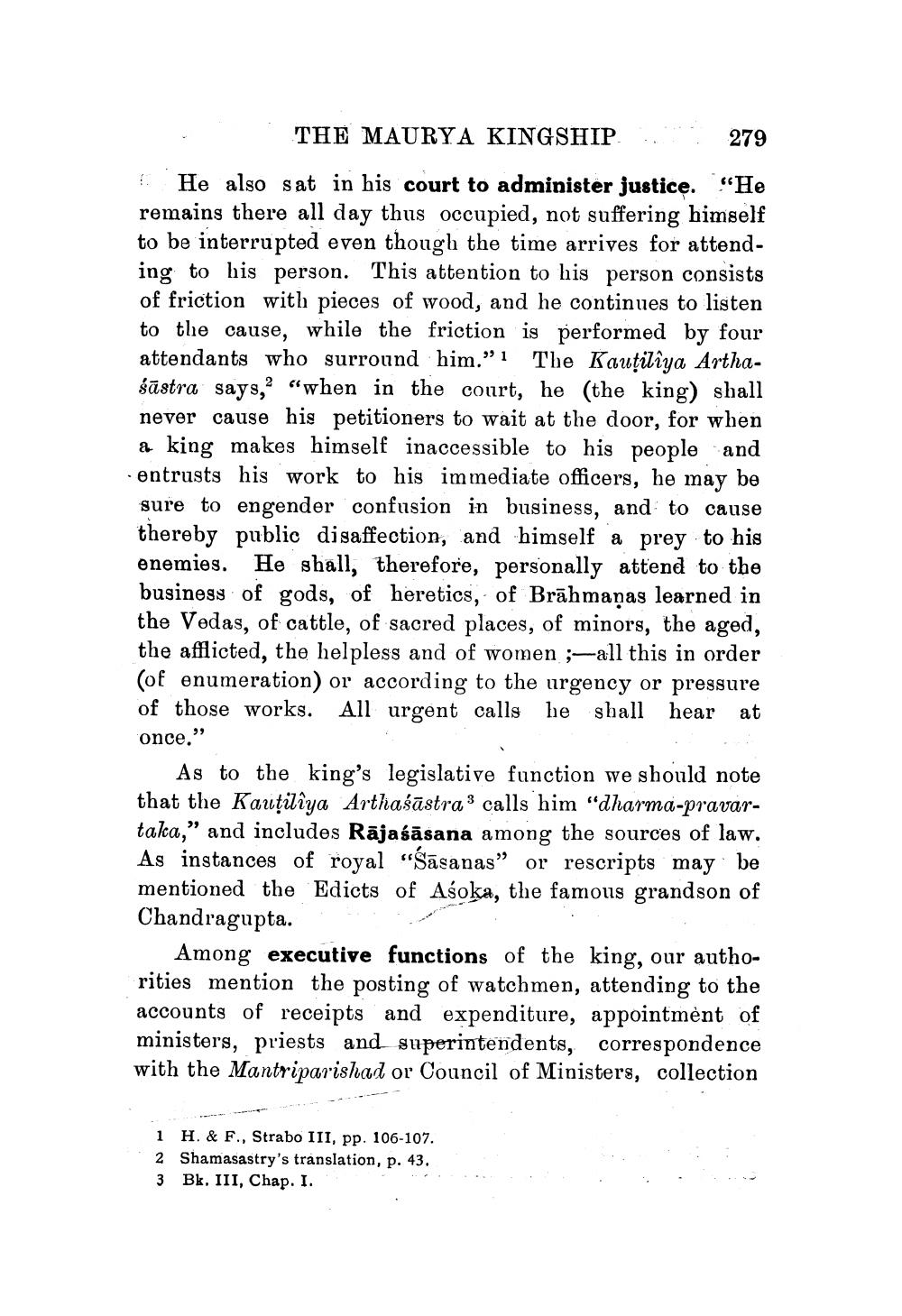________________
THE MAURYA KINGSHIP
279
He also sat in his court to administer justice. "He remains there all day thus occupied, not suffering himself to be interrupted even though the time arrives for attending to his person. This attention to his person consists of friction with pieces of wood, and he continues to listen to the cause, while the friction is performed by four attendants who surround him."1 The Kautiliya Arthasastra says, "when in the court, he (the king) shall never cause his petitioners to wait at the door, for when a king makes himself inaccessible to his people and - entrusts his work to his immediate officers, he
may be sure to engender confusion in business, and to cause thereby public disaffection, and himself a prey to his enemies. He shall, therefore, personally attend to the business of gods, of heretics, of Brahmanas learned in the Vedas, of cattle, of sacred places, of minors, the aged, the afflicted, the helpless and of women ;-all this in order (of enumeration) or according to the urgency or pressure of those works. All urgent calls he shall hear once."
at
As to the king's legislative function we should note that the Kautilîya Arthasastra calls him "dharma-pravartaka," and includes Rājaśāsana among the sources of law. As instances of royal "Sasanas" or rescripts may be mentioned the Edicts of Aśoka, the famous grandson of Chandragupta.
Among executive functions of the king, our authorities mention the posting of watchmen, attending to the accounts of receipts and expenditure, appointment of ministers, priests and superintendents, correspondence with the Mantriparishad or Council of Ministers, collection
1 H. & F., Strabo III, pp. 106-107.
2 Shamasastry's translation, p. 43.
3
Bk. III, Chap. I.




